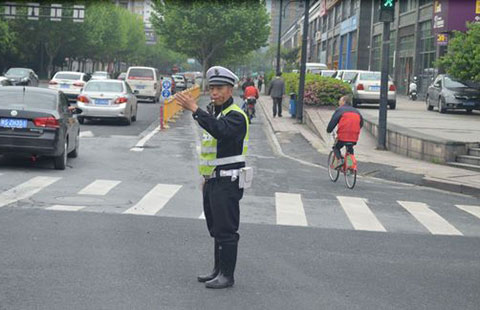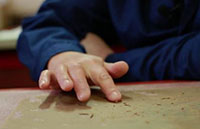New baby a sensation for parents and 'aunties'
By Erik Nilsson (China Daily) Updated: 2012-11-06 00:53All of a sudden, Chinese grannies were no longer just elderly members of our host society.
They'd become baby-seeking missiles, ready to explode with constructive criticisms the instant they made contact with our newborn baby, Liliana — and especially with my wife, Carol.
The blasts came one after another.
"What are you doing, taking such a young baby outside?!"
"She's not wearing nearly enough clothes!"
"She's crying! Of course! Such a small baby must stay inside! She'll get sick!"
Even more critiques targeted my wife than our baby.
We'd never heard of zuo yuezi, which is the Chinese prescription for what a new mother must do to protect her health in the first month after birth.
According to this tradition, as narrated by every elderly Chinese woman we met that month, new moms should remain not only indoors but also in bed. They must stay out of the wind. They must not eat anything cold.
They can't wash their bodies, brush their teeth, clip their fingernails or cut their hair — or do anything, it seems.
When the woman at the corner store saw my wife walking outdoors in sandals while eating ice cream a few days after Liliana's birth, she erupted into such a conniption that I thought she — rather than my wife — would need bed rest to recover.
We made it a point to walk the long way around our compound so she wouldn't see Carol for the next month.
Another fruit vendor in our community actually dashed out from her stand, yelling that Lily was cold and we shouldn't take her outside. She followed us for about half a block, squawking until we reached our door.
People absolutely freaked out when we took 3-week-old Lily to Datong's hanging monastery in Shanxi province. While I was dizzy from the heights, the fact that we'd brought our baby onto the cliff-side temple had Chinese visitors' heads spinning.
Our feelings about the unsolicited advice were bittersweet. While it got old pretty quickly, we appreciate that so many strangers were concerned about our family's welfare.
But once the zuo yuezi period was over, the attention lavished on Lily certainly didn't stop, although the criticism did.
Instead, the dozen or so women who encircle every diaper change in the park offer compliments on our technique. This is certainly a dimension of raising a foreign baby in China I hadn't expected before the birth and, in some ways, is more surprising than zuo yuezi.
The staffers in the department store's formula aisle take turns passing Lily around for mobile phone photos — shoving her back in my arms when their boss passes and scooping her back up as soon as he's out of sight.
We've come to realize that, if we're not to be rude, we must leave for errands and appointments about half an hour early to allow enough time for the several "aunties" we'll inevitably encounter to hold Lily.
It's incredible how many times a day we hear the words yang wawa (foreign doll) — local friends explain foreign babies look like the dolls they played with as kids, which perhaps partly explains why they fawn so much over Lily.
The intensity of this phenomenon became clearest when we took Lily to the zoo, where she rivaled the pandas as an attraction. As soon as Lily arrived in front of the golden monkey cage — as if someone had reversed a magnet's polarity — the visitors bounced off the enclosure's bars of and clustered around the small yellow-haired primate in the stroller.
Since our parents live on the other side of the planet, a nanny watches Lily when my wife and I are at work. Xiao Jiao often takes Lily around the community to play with "sisters" and "brothers".
When Carol and I take her around the university campus on which we live and Carol works, people we don't know greet her by name.
My wife recently started a new semester with new students. When she introduced herself to her students on the first day, they said they already knew who she was — "Lily's mom".
While, of course, like any parent, we deeply appreciate all the adoration of our daughter, we're also concerned that it might go to her head as she grows up.
At 1 year old, Lily can only say a few words — most of which she doesn't know the meaning of — and one of them is yang wawa.
Contact the writer at erik_nilsson@chinadaily.com.
- 60% of career women say no to second child, report finds
- New rule targets military corruption
- Chinese abroad told to be on alert
- About 30 workers buried alive by landslide in east China
- Express delivery firms in Shenzhen promise to outdate tricycles
- China renews blue alert for rainstorm
- IMF: Economic restructuring 'desirable'
- Doctor severely wounded by ex-patient
- Speedier delivery to aid transplants
- 118 flights delayed by storms in Guangzhou








